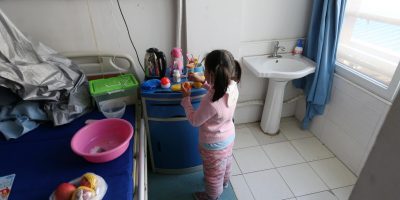As the number of cases increase, with 6,065 confirmed cases and 132 deaths, we are learning more about the Coronavirus (nCoV) by the day and how it is spreading within China and globally. As crucial medical and epidemiological knowledge is being produced in real time, we believe that there is an urgent need to use a social science lens in the response to nCoV in tandem.
The rapid spread of the disease has meant that the Chinese government and other countries reporting nCov cases are having to respond to the epidemic within a context of uncertainty. China has quarantined millions of people, put cities in lockdown, implemented travel bans, halted air and train transportation, stocked medical supplies and are building hospitals to deal with the expected caseload.
Other countries are screening passengers upon arrival from the affected areas and tracking them should they show any symptoms. Epidemiological data will give insights into the effectiveness of these measures.
While treatment of existing cases goes on in China and other affected countries, epidemiologists are trying to figure out incubation times, reproduction rates, capacity to infect before symptoms arise, rates of asymptomatic cases, real rates of severely ill people (as community cases would not be reported), the origin of the disease and the real spread of the epidemic. This is without doubt vital work. Transparent Epidemiological from the Chinese government and data made available by scientific journals and researchers has strengthened these efforts.
The importance of social and cultural context
Alongside epidemiological and medical approaches, we believe, as social scientists with experience in epidemic response working within the networks of the Social Science and Humanitarian Action platform (SSHAP) and SONAR-Global, that social science research and evidence must included in this response.
Collaboration between social scientists and practitioners is vital to understand the key social and cultural features of the local contexts of affected areas, and how these will directly influence the strategy and implementation of the nCoV response. We must investigate social contexts of health emergencies to better control outbreaks and to prepare for them.
Our networks aim to inform ‘standard’ response activities that are being implemented both in China and abroad, such as screening, quarantining, social isolation, and media communication. The goal is not to relay instructions, but rather create a learning exchange between nCoV responders and relevant social scientists.
This is essential to maximise the wealth of experience that emerges both from anthropological and sociological analysis of epidemic responses in different contexts for similar airborne diseases, including historical analyses.
What can we learn from previous outbreaks?
The response to the Avian Flu in 2008 was very much focused on a narrative that focused on security and risk, sidelining underlying disease drivers, impacts on poverty and livelihoods, and issues around access and governance. The STEPS centre in its analysis on the outbreak emphasised the importance of the politics of outbreak.
There are also important considerations for operational responses. As part of a USAID-OFDA Social Science in Epidemics work for SSHAP, we showed the importance of considering the effects of political economy, social difference and vulnerability, and cultural logics in the emergence and management of pandemics.
For instance, there are different types of quarantining (state or city-wide, neighbourhood, household and so on) that have been implemented in different geographical and historical contexts, and they work better with local consent and involvement. People are not equally vulnerable to the disease, and often ‘pre-existing conditions’ are linked to longstanding economic or social inequalities.
Measures of control can have unequal impact, so untailored measures on food production, markets or trade can have a significant impact on people’s livelihoods in different ways. People can resist response measures or continue informally with practices that they consider essential to their livelihoods, so that these then become less visible. For effective response it is important to understand the history of the health system and nurture of transparent and trusting local alliances.
Social science networks can provide crucial support to stemming nCoV by promoting the understanding of the context-response relationship as emergent and constantly evolving. They can support adaptive learning, with social science, media and behavioural data gathered during the response (for example, on changing behaviours, community feedback or preferences). This can be used as an evidence base to help shape actions on the ground in near-real time. Experience from other diseases, such as Ebola, could be potentially transferrable to the nCoV response (for example around media tracking and community feedback mechanisms).
Identifying opportunities for mutual learning and exchange
In light of the current context SSHAP and SONAR-Global have identified the following areas for mutual learning and exchange to understand:
- media tracking and encouraging reporting to avoid fear and stigma
- regulation of livelihoods, such as those associated with animal and meat trade of various kinds
- the particularities of outbreaks in urban areas
- context-specific health-seeking behaviours
- the social and historical aspects of quarantining, travel restrictions, social distancing and other forms of non-therapeutic measures across different contexts
- other issues such as community engagement and vaccine trials.
We hope that the mobilisation of social science evidence will contribute to determine tangible ways to better address the social, political and economic dynamics of the nCoV epidemic. Hopefully this will lead to the promotion of interventions globally that build on the social and cultural resources of the communities they aim to support.
Please contact [email protected] if you are interested in contributing to the network.
This blog originally appeared on the Institute of Development Studies website.




